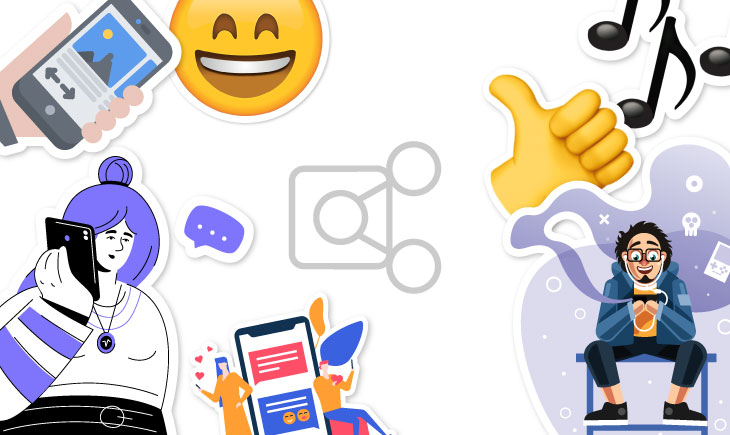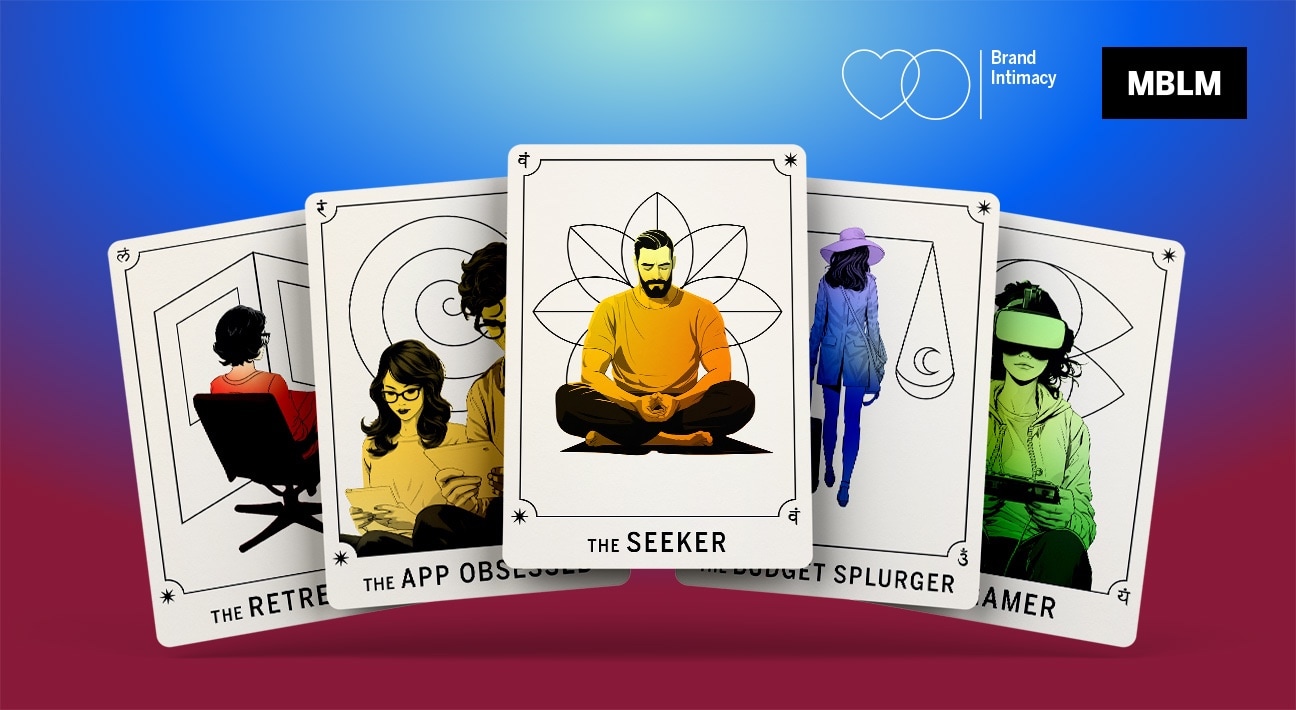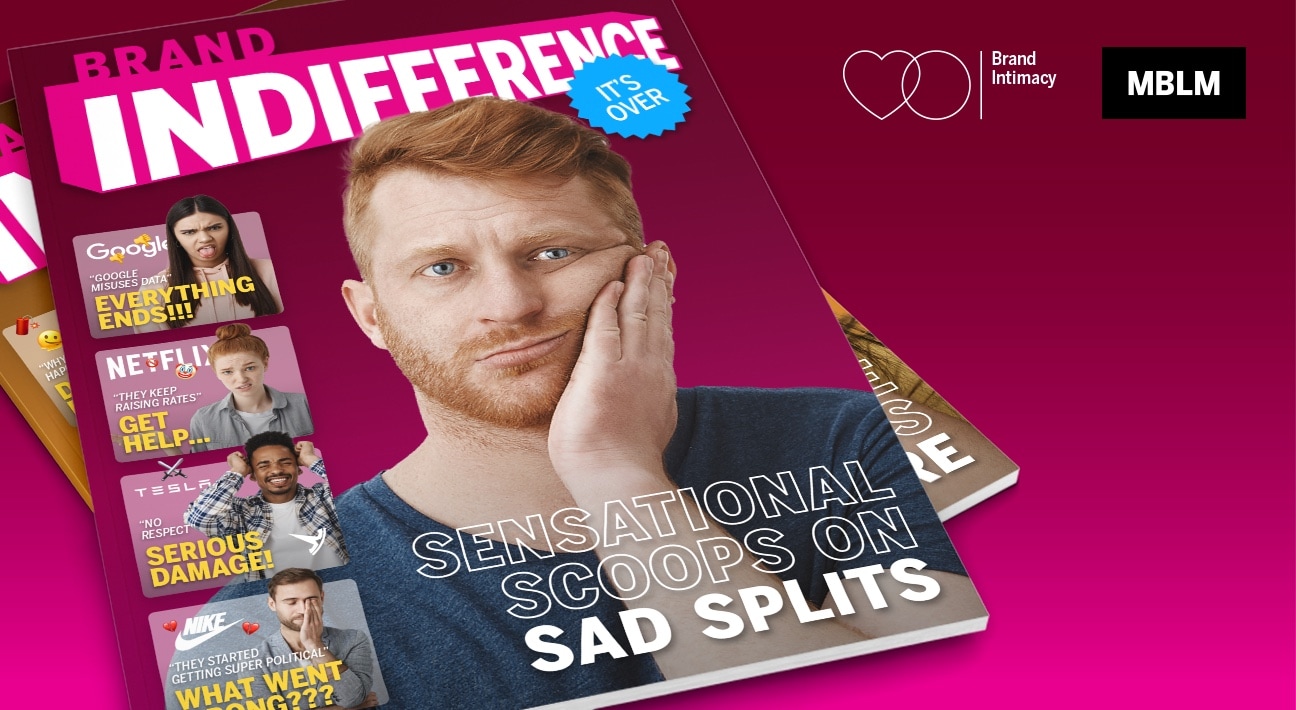Apps & Social Platform Brands Playing Key Role in New World of Social Distancing

Apps & social platforms are playing a key role in the new world of social distancing, which could be impacting the way consumers connect to them emotionally. MBLM (pronounced Emblem), the agency using emotional science to build more intimate brands during these unprecedented times, is analyzing the industry and how its Brand Intimacy profile may be changing due to the COVID-19 pandemic and consumers’ increased usage. The agency also announced the apps & social platforms findings of its Brand Intimacy 2020 Study, which is the largest study of brands based on emotions The study, now in its 10th year, revealed that Spotify ranked #1 in the industry followed by Pinterest and Apple Music. The remaining brands in the top 10 for the apps & social platforms industry were: Facebook, Instagram, Pandora, Snapchat, Twitter, Airbnb, Uber, LinkedIn and Venmo.
Brand Intimacy is defined as the emotional science that measures the bonds we form with the brands we use and love, and is more relevant than ever as brands must alter their roles and relevance during today’s challenging times. Top intimate brands in the U.S. continued to significantly outperform the top brands in the Fortune 500 and S&P indices in both revenue and profit over the past 10 years, according to the study.
The apps & social platforms industry is playing an important role during the COVID-19 pandemic. It is a resource for disseminating information and also for keeping people engaged. For example, both health care practitioners and consumers have greatly increased their social media conversations around disease states recently[1]. Apps are also being highlighted as a tool for connecting people with family, friends and colleagues while social distancing[2]. Brands are also taking notice of consumers’ shifting needs, for example, due to the increase in its app usage, Pinterest launched a new ecommerce merchant program[3]. Snapchat has created a new lens to help people donate to WHO’s COVID-19 relief fund[4]. And Apple Music started a $50 million relief fund to help ensure indie musicians are paid during the pandemic[5].
MBLM’s latest article, “Apps & Social Platforms: Why Social, Why Now?,” details the past performance of brands in this space and how COVID-19 has created a new role and rituals for social brands.
“Apps & social platforms have become more essential in helping us feel connected during the current crisis,” stated Mario Natarelli, managing partner, MBLM. “Although historically weak performers at building emotional connections, the current landscape presents an opportunity for these brands to forge stronger bonds with their audiences and attract new ones.”
Additional significant apps & social platforms findings in the U.S. include:
- Apple Music was the top brand for men, while women, millennials and those earning $100,000 or less preferred Spotify
- Those over the age of 35 and consumers who earn more than $100,000 ranked Pinterest as their top brand in the category
- Consumer preference for Apple Music and Facebook increased
- Enhancement, which relates to becoming better through use of the brand, was the archetype most associated with the category, and Pinterest was the top brand for enhancement
The Brand Intimacy 2020 Report contains the most comprehensive rankings of brands based on emotion, analyzing the responses of 6,200 consumers and 56,000 brand evaluations across 15 industries in the U.S., Mexico and UAE. MBLM’s reports and rankings tool showcase the performance of almost 400 brands, revealing the characteristics and intensity of the consumer bonds.
To view the apps & social platforms industry findings, please click here. Additionally, MBLM offers Custom Dashboards providing extensive data for brands included in its annual Brand Intimacy Study. To download the full Brand Intimacy 2020 Study or explore the Rankings click here.
Methodology
During 2019, MBLM with Praxis Research Partners conducted an online quantitative survey among 6,200 consumers in the U.S. (3,000), Mexico (2,000), and the United Arab Emirates (1,200). Participants were respondents who were screened for age (18 to 64 years of age) and annual household income ($35,000 or more) in the U.S. and socioeconomic levels in Mexico and the UAE (A, B and C socioeconomic levels). Quotas were established to ensure that the sample mirrored census data for age, gender, income/socioeconomic level, and region. The survey was designed primarily to understand the extent to which consumers have relationships with brands and the strength of those relationships from fairly detached to highly intimate. It is important to note that this research provides more than a mere ranking of brand performance and was specifically designed to provide prescriptive guidance to marketers. We modeled data from over 6,200 interviews and approximately 56,000 brand evaluations to quantify the mechanisms that drive intimacy. Through factor analysis, structural equation modeling, and other sophisticated analytic techniques, the research allows marketers to better understand which levers need to be pulled to build intimacy between their brand and consumers. Thus, marketers will understand not only where their brand falls in the hierarchy of performance but also how to strengthen performance in the future.
To read a more detailed description of MBLM’s approach, visit its Methodology page.
[1] Docs are talking about COVID-19 on social media—and pharma is looking for lessons
[2] Apps to keep us connected in a time of social distancing
[3] Pinterest Adds New Shopping Tools to Help Brands Capitalize on Rising eCommerce Trends
[4] Snapchat’s new lens helps users donate to the WHO’s COVID-19 relief fund
[5] Apple Music Quietly Starts $50 Million COVID-19 Advance Fund for Indie Labels

